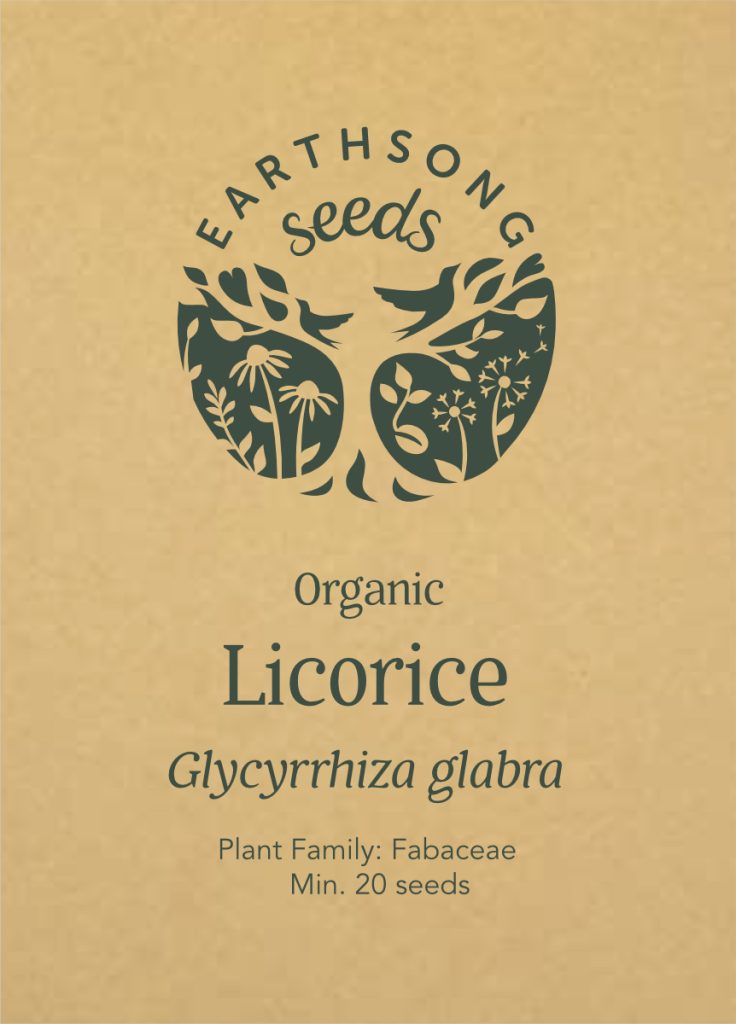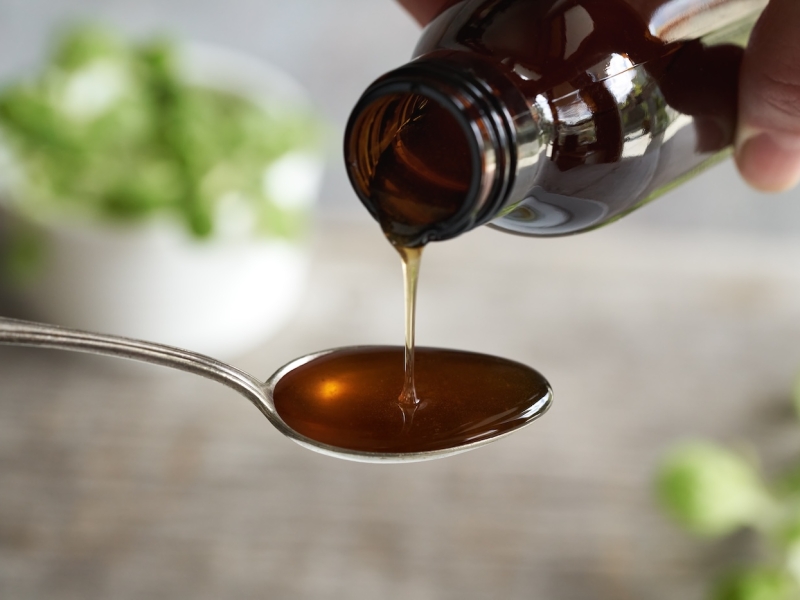The sweetness of licorice largely comes from the triterpenoid saponins including 2-6% glycyrrhizin, present in the form of potassium and calcium salts. It also has a slight bitterness predominantly found in the outer skin or the root. Its familiar flavour is also partly made-up from the small amount of the essential oil, anethole, one of the compounds in aniseed and fennel (no close botanical relationship though).
Its sweetness indicates its strengthening and moistening properties. Licorice is emollient, demulcent and nutritive. It naturally produces mucilage which soothes inflamed mucous membranes throughout the body, with a particular affinity for the respiratory tract, digestion and urinary system. It encourages a healthy inflammation response and, through coating hot and irritated membranes, allows time for damaged cells to regenerate and repair effectively.
It strengthens and supports the nervous system and adrenal glands through the production of constituents that mimic those found in the adrenal cortex. It will modify the body’s own stress response to prevent the onset of adrenal exhaustion and impart a tonifying effect through the body.
It is also an effective hepatoprotective, supporting the regeneration and repair of damaged liver cells, particularly in chronic conditions such as cirrhosis and hepatitis.
There is a large body of research on licorice including a number of clinical trials. The main areas of clinical investigation on licorice include supporting healthy liver function, weight reduction, treating sore throats, effects on steroid metabolism in women, antiviral activity and chronic viral hepatitis treatment. Research also points towards benefit in managing arthritis. Licorice sticks are very widely used around the world as toothbrushes, a reputation backed by modern evidence for a benefit against tooth decay and gum problems.
Safety
Moderate licorice consumption is likely to be safe for the vast majority of people. Regular high levels of licorice consumption, especially in the form of licorice candy, have been associated with raised blood pressure. The best calculation is that regular intake of 12g per day over a long period could cause such a problem.
Similar concerns have been raised in relation to regular high doses taken during pregnancy and this should be avoided, especially if there is associated high blood pressure.
Licorice may interact with corticosteroids and certain types of (potassium-depleting) diuretics and laxatives and again if these are being prescribed it will be wise to keep any regular consumption at low levels and check with your prescriber. Long term regular use of high doses may not be wise if you have osteoporosis.
Normally used at 1-5g per day.





















